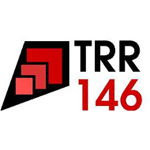
Seminar über Theorie der kondensierten Materie / TRR146 Seminar
July 5, 2005 at
1:15 p.m.
in
Newton-Raum (01-122, Bau 2.413)
F. Schmid
friederike.schmid@uni-mainz.de
P. Virnau
virnau@uni-mainz.de
L. Stelzl
lstelzl@uni-mainz.de
Evaluation of Decoherence for Quantum Control and Computing
Arkady Fedorov (Clarkson University Potsdam, USA)
Different approaches in quantifying environmentally-induced decoherence are considered. We identify a measure of decoherence, derived from the density matrix of the system of interest, that quantifies the environmentally induced error, i.e., deviation from the ideal isolated-system dynamics. This measure can be shown to have several useful features. Its behavior as a function of time has no dependence on the initial conditions, and is expected to be insensitive to the internal dynamical time scales of the system, thus only probing the decoherence-related time dependence. As a representative example, decoherence of an electron in double quantum dot due to the interaction with acoustic phonons is considered. For the case of noninteracting many-particle system the property of additivity is established: in the regime of the onset of decoherence, the sum of the individual qubit error measures provides an estimate of the error for a several-qubit system, even if the qubits are entangled, as expected in quantum-computing applications. The problem of collective dipole-dipole decoherence of nuclear spins is also presented for strongly entangled spin cluster. Our theory is consistent with previous theoretical findings and recent experiment reported in decoherence of correlated spin clusters.